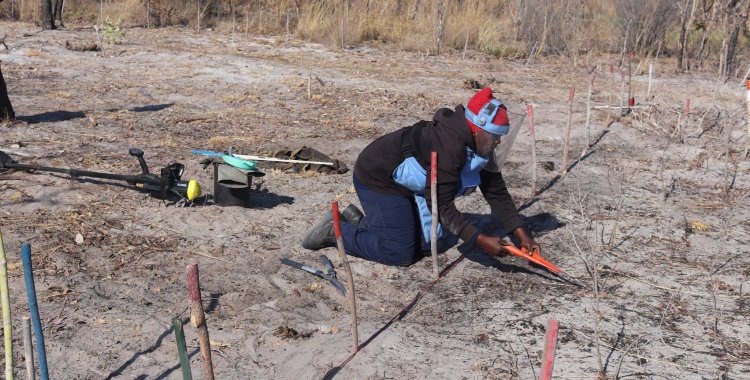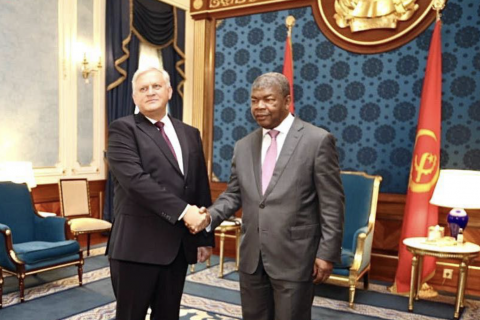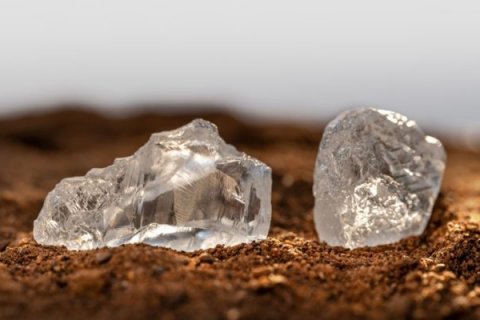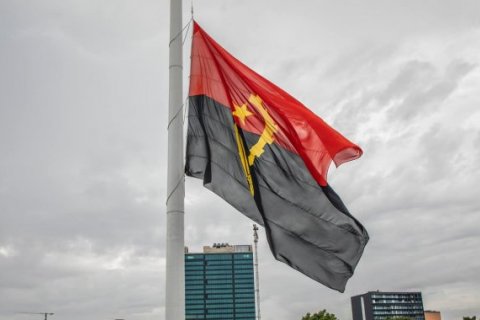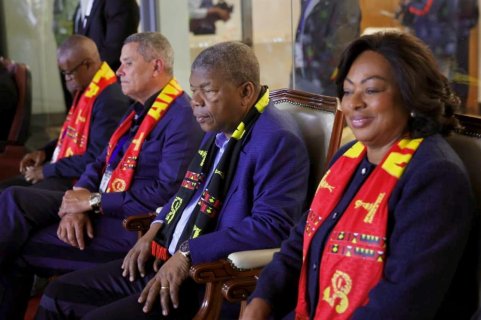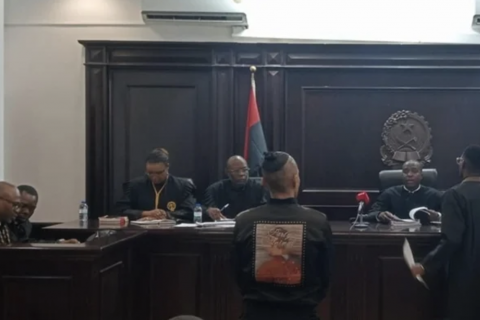The executive director of the Halo Trust, which claims to be the world's largest and oldest demining organisation, was in Luanda and spoke to Lusa about the main challenges facing the development of these activities, including funding.
"We came to assess progress and encourage our partners and donors to continue funding our work," James Cowan told Lusa.
Operating in 30 countries, the Halo Trust became famous in 1997 when Princess Diana went to Angola and walked through one of its minefields, in Huambo, to draw the world's attention to the problem, a step that was followed 20 years later by her son Harry when he visited the same place.
Halo Trust has been in Angola since 1994 and has already destroyed more than 118,000 landmines in more than 1050 minefields in an area equivalent to 41 square kilometres, mainly in rural areas. It currently operates in six of the country's 18 provinces: Luanda, Huambo, Bié, Namibe, Huíla and Cuando Cubango.
The size of the country, along with funding, is another major challenge for Halo Trust's operations.
"It's a huge country with mines everywhere", while in other countries such as Ukraine, Zimbabwe and Cambodia, mines are confined to certain areas, said the head of Halo Trust.
"Our job is to clear the entire country, but the distance creates logistical challenges. Some of the places where we work, in the southeast of the country, in the Okavango area (Cubango River) are extremely remote, the roads are in poor condition, it is very demanding for the vehicles and for the teams themselves," he stressed.
James Cowan also recalls that Angola has experienced conflict for decades, first fighting for independence against the Portuguese and then in a long civil war in which it also faced foreign interventions from South Africa, Cuba and the Soviet Union, which left the country littered with different types of mines.
"This means that our employees have to be technically very specialized, some of these mines are among the most dangerous in the world," he said, stressing that demining is a priority for the Government, which has invested heavily in these activities in recent years.
In 2019, Halo Trust secured a 60 million dollars contract for a five-year period that ends next year and is now seeking a new contract with increased funding and a longer term.
"If the country wants to diversify its economy, if it wants to revive agriculture, if it wants to build the Lobito Corridor – which is not just a railway, it runs through communities – if it wants to invest in ecotourism, and develop this capacity like Botswana, it cannot have landmines. Botswana does not have mines. Zambia does not have mines. South Africa does not have mines. Mozambique does not have mines," he pointed out.
"If we do not get rid of these mines, there will be no trust," insisted the director of Halo Trust.
The extensive Lobito corridor, a railway that starts at the Lobito terminal and crosses Angola for around 1300 kilometres to the border with the Democratic Republic of Congo, crosses several minefields, according to the head of Halo, who identified these areas as priorities.
Around a thousand minefields remain throughout the country and Halo is focusing on areas where the population is concentrated or where there is economic need, making the areas safe for farming. Over the years, Halo has cleared more than 5500 kilometres of national roads and employs around 1600 Angolan workers in demining brigades.
Part of this workforce is female. There are around 900 women, many of whom are heads of households who are thus able to support their families and pursue a career.
"It is an investment in them and a benefit for their children", highlights James Cowan, declaring himself "very proud" of the success of these women.
The "deminers" are trained by Halo teams and learn to distinguish between different types of mines, assessing their proximity to the surface, age, and amount of metal, using sophisticated detectors.
Halo is also investing in other types of more advanced technologies, including robotic vehicles and drones and even artificial intelligence to "scan" the aerial and satellite images provided by the drones.
"If we teach machines to identify mines, we can clear mines faster. We are focused on technology to make our systems faster and safer," stressed James Cowan, indicating that the risk of accidents is very low.
The biggest risk, he added, is not clearing mines. Leaving mines in the ground poses a risk to civilians and wildlife, so a large part of Halo's work is to provide so-called risk education and raise awareness in communities.
"We are committed to having as few accidents as possible, there are always some, the last one was in May, fortunately no one was killed, but we try to learn the lessons to understand what went wrong," he said.
As for the mines, they are destroyed or used for demonstration purposes in training, after the explosives have been removed.
As for Halo, after finishing the work and demobilizing the local teams, it is also committed to leaving skills to the workers that will make them more qualified to find jobs in other sectors, such as drivers, mechanics, radio operators or information managers, assured James Cowan.

